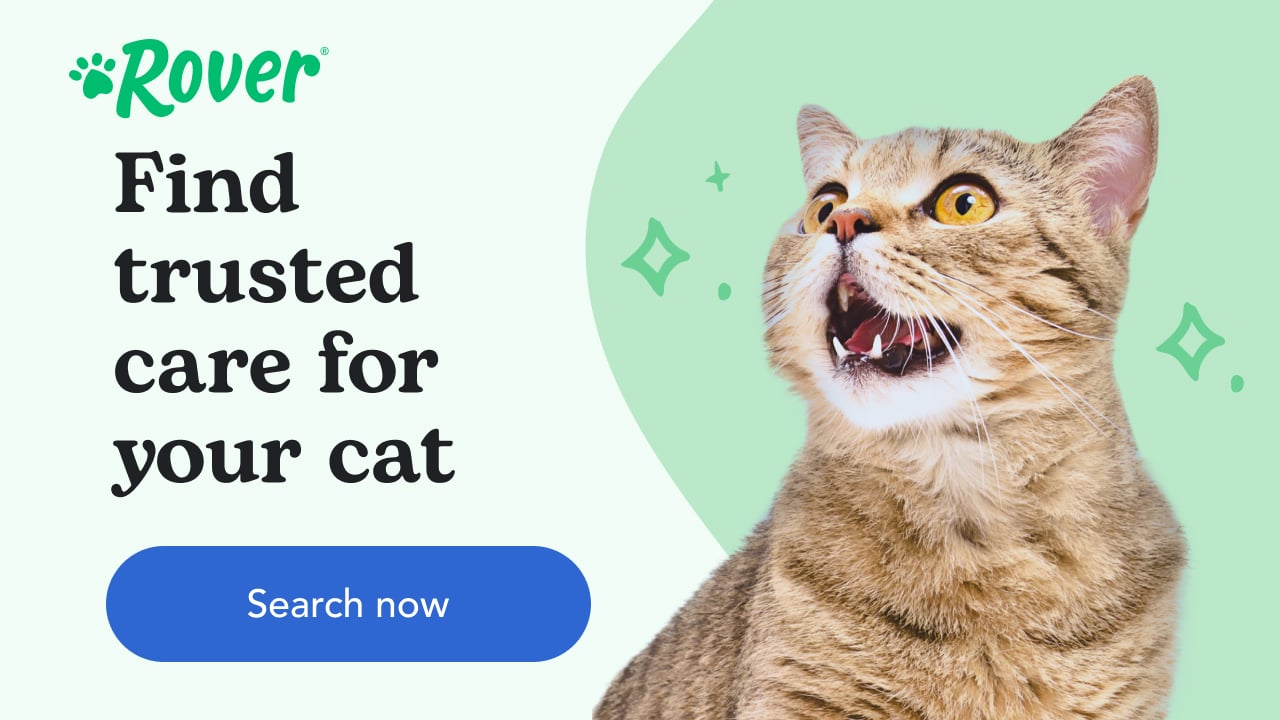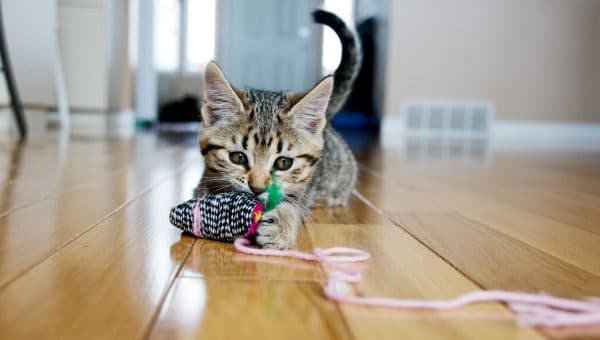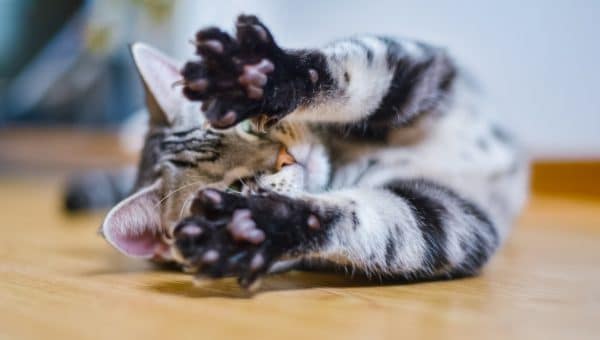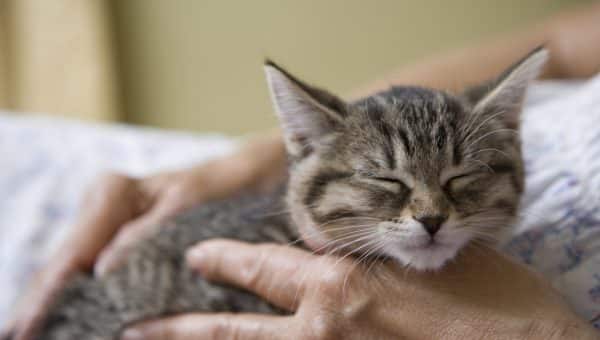While cats have plenty of quirky or strange behaviours, you may be scratching your head if your cat has started to hump their favourite stuffed toy or blanket. Though it might initially be concerning, don’t worry! Humping is a natural behaviour for neutered and unneutered male and female cats.
Cats hump for a variety of reasons, most often for mating. But Dr Janet Cutler, certified cat behaviourist at Cat World, mentions that stress and anxiety can also motivate your cat to hump everything. Contact your vet if you suspect they’re humping due to a medical condition.
The good news? There are ways to stop this behaviour in the short and long term. Keep reading to learn more about why cats hump and how to stop it for good.
5 Reasons Why Cats Hump
There are several reasons why a cat might hump, and it’s not always sexual. Dr Cutler outlines the most common reasons below.
Your cat is mating
Often, cat humping is due to sexual behaviour. Dr Cutler explains that entire (unneutered) cats can show this behaviour as part of their sexual repertoire, and their sex hormones drive it.
She adds that if your cat is neutered or spayed and still humping, it could mean they learned the behaviour before being spayed or castrated.
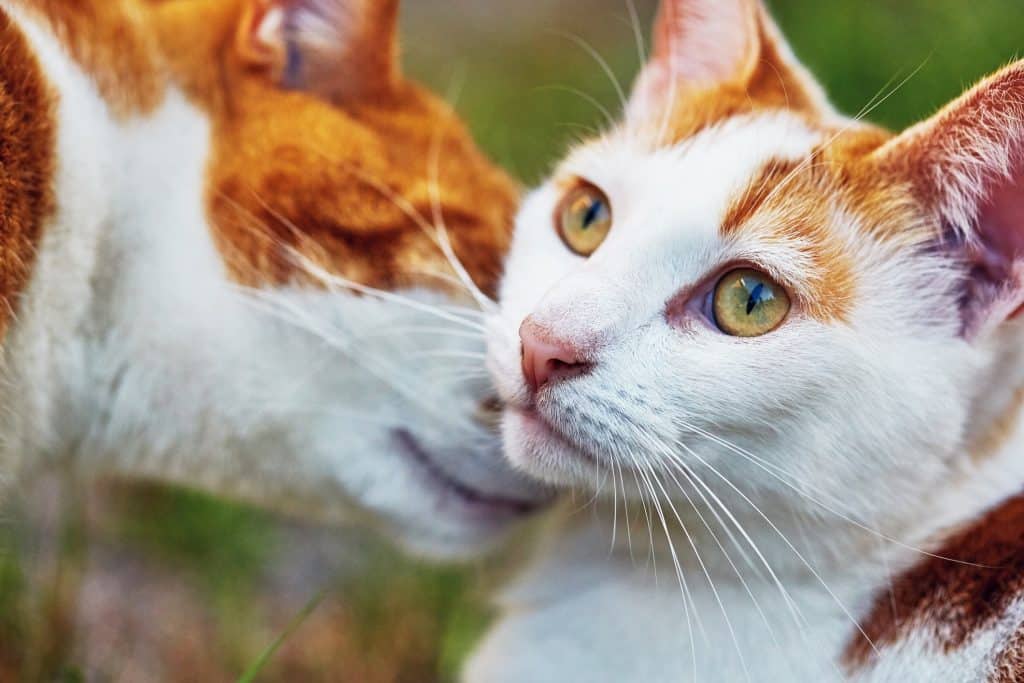
iStock/RapidEye
Your cat has a medical problem
If your cat’s humping, it’s essential to see a vet to rule out any medical concerns, including—but not limited to—the following:
- neoplasia
- bladder concerns
- infectious disease
- adrenal gland problems
If your vet has ruled out a health issue as the cause, the humping is likely due to a behavioural problem.
Your cat is stressed or anxious
Dr Cutler says cats might hump if they feel stressed or anxious to help relieve those emotions. Some causes of stress and anxiety in cats include new pets or humans to the house, ageing, fireworks or even another illness. Besides humping, you might notice other behavioural problems if your cat is stressed or anxious, such as spraying or aggression.
Your cat is bored
Cats, just like humans, can experience boredom. They combat boredom by vying for their pet parents’ attention, and humping is a good way of doing that. Other signs your cat is bored include overeating, disinterest in everyday activities, and destructive behaviours.
Your cat was not neutered completely
While not as common, humping may be due to incomplete neutering. Dr Cutler explains that sometimes testicular tissue is still present after neutering. Additionally, she says if your cat had cryptorchidism, a condition when a testicle fails to descend, or if a testicle wasn’t removed, they could still produce sex hormones.

iStock/Chalabala
Why Is My Cat Humping Me?
It is normal for cats to hump their pet parents because it’s a way to gain their attention. Your cat might also hump you while kneading, or ‘making biscuits’ to show their affection for you. While it’s cute they want to show you they love you, this display of affection is often unwanted.
If the humping is stress related, then their pet parent may be associated with those emotions, and the cat is seeking comfort from them.
Finally, contrary to popular belief, Dr Culter explains that cat humping is not a dominant behaviour over pet parents.
Why Is My Cat Still Humping After Being Neutered/Spayed?
You may wonder why your cat continues to hump even after they’re neutered. As previously mentioned, this could be a learned behaviour before spaying or castration that they continue after the surgery.
Dr Cutler adds that if your cat was recently neutered or spayed, it might take some time for the humping to go away.
However, if you notice this behaviour continues for a long time after the procedure, it’s best to consult your vet and rule out any other medical issues that might cause humping.
Do Male Cats Hump More Than Females?
Dr Cutler says: “Male cats are more likely to hump, [while] female cats are more likely to stand in a specific mating position and mount another object or cat.” In addition, unneutered cats are more likely to hump than neutered ones.
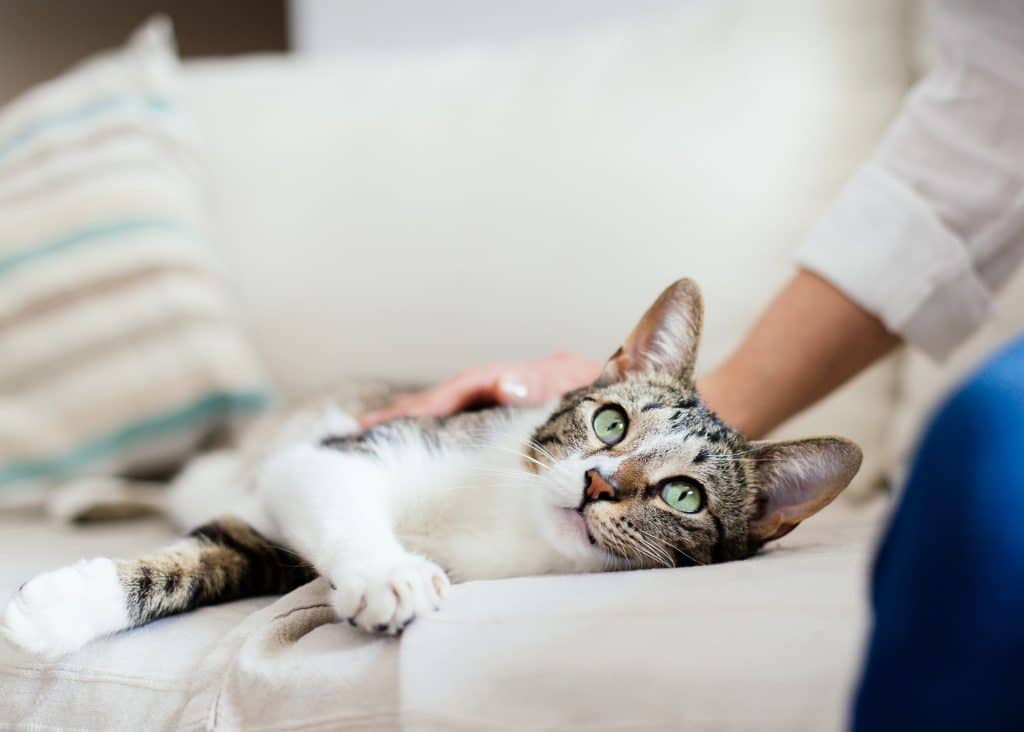
iStock/disqis
How To Stop My Cat From Humping Everything
Though humping alone may not harm your pet directly, Dr Cutler notes that it’s not a particularly well-liked behaviour among pet parents.
To stop this behaviour, Dr Cutler advises you to interrupt humping with a distraction to get them focused on something else.
While it’s safe to stop them mid-hump, have something to distract them with before you interrupt the behaviour. To stop it long-term, you must first identify what is causing the behaviour and take appropriate action.
- Medical. Consult with your veterinarian to rule out any medical problems causing this behaviour. They will also be able to identify an incomplete neutering procedure.
- Stress or anxiety related. Read your cat’s body language to understand better what is causing them stress or anxiety. Some surefire ways to help your anxious or stressed pet are playtime on their terms, establishing a safe space, and giving them lots of fuss and love.
- Boredom. To combat cat boredom, increase their mental stimulation with interactive toys and puzzles, scratching posts, a catio, or invite a pet sitter over to play with them when you’re away!
With a better understanding of humping and a little patience, you can stop this unwanted behaviour once and for all.

